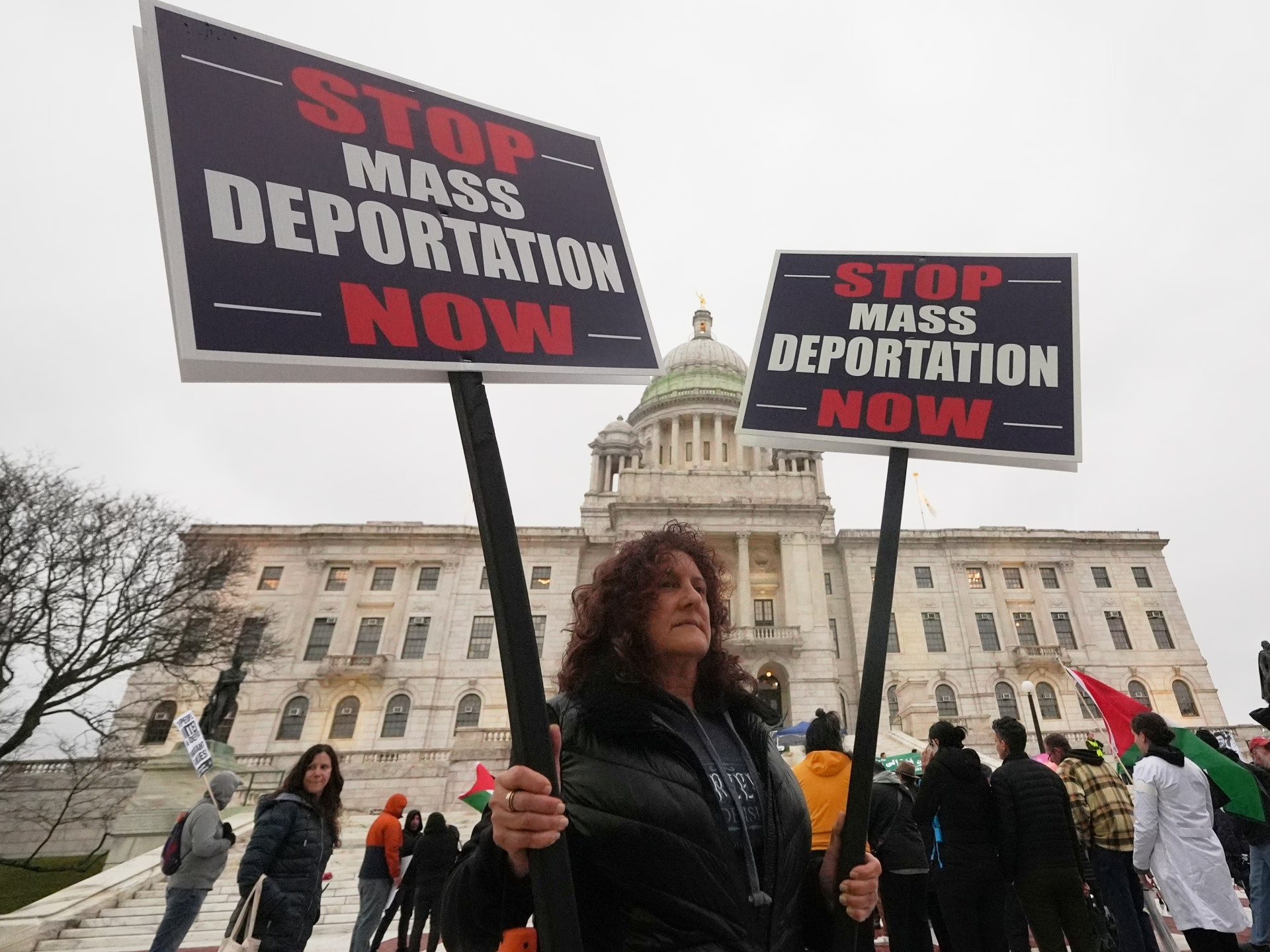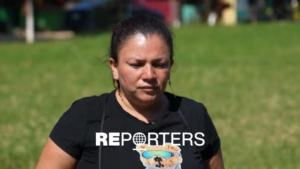Columbia University activist holding a green card, an academic from Georgetown University on a student visa, a Brown University kidney transplant specialist with a work visa – all these individuals face detention or denial of entry into the US by immigration authorities despite having legal permits.
President Donald Trump publicly supports legal immigration and claims his campaign promise of mass deportations will focus on violent criminals. However, some of the most prominent examples of attempted deportations involve individuals with legal permission to be in the US.
Immigration experts acknowledge that previous administrations have also deported individuals with visas and green cards. However, the actions of the Trump administration have been seen as unprecedented.
Matthew Boaz, a professor of immigration law at the University of Kentucky, asserts that the Trump administration disregards common guidelines and procedures, resorting to obscure sections of immigration law to justify the deportation of individuals with limited or no due process.
Mahmoud Khalil, a Columbia University graduate and pro-Palestinian activist, was detained under a Cold War-era law that allows the Secretary of State to make individuals subject to deportation if their presence or activities could harm US foreign policy interests. Similarly, another Columbia University student involved in the pro-Palestine movement faced deportation under the same law, but a federal judge temporarily blocked the action.
In these cases, the question remains: what evidence do government officials require, and what are the rights of individuals?
Immigration experts emphasize that the government must provide proof to deport a green card or visa holder, but the process can be lengthy. For example, Khalil has been held in an ICE detention facility in Louisiana since his arrest on March 8, and his lawyers argue that the detention is unlawful.
Visa holders at US borders or airports may face denial of entry without proof.
The reasons for deportation of legal permanent residents (green card holders) include criminal convictions such as rape or drug trafficking, and immigration fraud. The government can also deport permanent residents if they commit immigration fraud. For instance, after Khalil’s arrest, his charging documents were updated, accusing him of failing to disclose his work with UNRWA and other international groups in his green card application.
While legal permanent residents have the right to plead their case in court, only an immigration judge can revoke a green card. Visa holders may be deported for reasons like crime, fraud, overstaying their visa, or working without authorization. Visa holders are accommodated with the same due process as legal permanent residents, and the government has the burden of proof.
Visa holders can also be denied entry at airports or borders. Customs and Border Protection officers have discretion to admit or deny entry, and may deny entry to those with past criminal convictions, risk of overstaying their visas, or who intend to work in the US without authorization.
Debate exists among immigration law experts regarding whether the Trump administration adheres to the legal processes of deporting legal permanent residents or visa holders. Some experts suggest that while the administration follows basic processes, the approach is unorthodox and targets individuals without criminal convictions and legal status. Others argue that the administration diverges from the established legal procedures.
Immigrants have certain rights when interacting with immigration officials, including protection under the US Constitution for those already in the country. Immigration agents may not enter homes without a judicial warrant; administrative warrants signed by ICE officers lack the same legal weight as judicial warrants.
At airports, travelers’ rights vary. All travelers are subject to customs officers’ questions about identity and immigration status. US citizens and green card holders cannot be denied entry, though green card holders can be detained if officers suspect deportability, and visa holders can be denied entry if they refuse to answer questions.
Source: https://www.aljazeera.com/news/2025/3/28/what-evidence-does-the-us-government-need-to-deport-green-card-holders?traffic_source=rss






